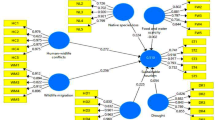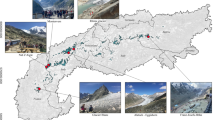Abstract
Tourism and recreation are important economic activities which are major agents of change globally and, more specifically, in wetland areas. There is a regular round of activities associated with the seasons and anything which influences operating seasons is likely to have substantial consequences for tourism businesses Atmospheric conditions influence both whether or not people will participate as well as the quality of the experience. In marine coasts, wetland recreations may be threatened by rising sea levels but recreation in inland water bodies may be affected more by deficiencies rather than superabundance of water. Marinas and recreational boating are harmed by extremes of both high and low water, particularly the latter which is the most likely situation under global climate change. Two main groups can be considered with respect to the potential to adapt to climate change. These are the participants themselves and the businesses which cater to them. It is argued that the former are likely to be much more adaptable than the latter.
Similar content being viewed by others
References
Armentano, T.V., Park, R.A. and Cloonan, C.L.: 1988, Impacts on coastal wetlands throughout the United States in Titus, J.G. (ed.), Greenhouse Effect, Sea Level Rise and Coastal Wetlands, United States Environmental Protection Agency, Office of Policy, Planning and Evaluation, Washington, D.C. pp. 87–149.
Bailey, R.O. and Kerr-Upal, R.: 1997, Global Climate Change: Risks to Recreational Fisheries and Aquatic Environments, The Recreational Fisheries Institute of Canada, Kanata, Ontario.
Bardecki, M.: 1981. ‘The role of agriculture in declining wetlands’ in Champagne, A. (ed.) Proceedings of the Ontario Wetlands Conference, pp. 64–73.
Bergmann-Baker, U., Brotton, J. and Wall, G.: 1992–1993, Non-Riparian Recreational Boater and Marina Operations Study: Canadian Section, Interim Report and Final Reports, IJC Working Committee 3, Task Group 4, The Water Network, University of Waterloo, Waterloo (3 reports-marinas, recreational boaters, implications of water level scenarios).
Bergmann-Baker, U., Brotton, J. and Wall, G.: 1995, ‘Socio-economic impacts of fluctuating water levels for recreational boating in the Great Lakes basin’, Canadian Water Resources Journal, 20(3), 185–194.
Botkin, D.B., Nisbet, R.A., Bicknell, S., Woodhouse, C., Bentley, B. and Ferren, W.: 1991, ‘Global climate change and California's natural ecosystems’ in Knox, J.B. and Schearing, A.F. (eds), Global Climate Change and California, University of California Press, Los Angeles, pp. 123–149.
Brotton, J. and Wall, G.: 1997, ‘Climate change and the Bathurst caribou herd in the Northwest Territories, Canada’, Climatic Change, 35, 35–52.
Butler, J.R. and Hvenegaard, G.T.: 1988, The economic values of bird watching associated with Point Pelee National Park, Canada, and their contributions to local communities. Paper presented at The Second Symposium on Social Sciences in Resources Management, University of Illinois, Urbana.
Butler, R.: 1994, ‘Seasonality in tourism: issues and problems’, in Seaton, A.V. (ed.), Tourism: The State of the Art, Wiley, Chichester, pp. 332–339.
Coker, A.M., Thompson, P.M., Smith, D.I. and Penning-Rowsell, E.C.: 1989, ‘The impact of climate change on coastal zone management in Britain: a preliminary analysis’ in The Academy of Finland, Conference on Climate and Water, Government Printing Center, Helsinki, vol. 2, pp. 148–160.
Crowe, R.B., McKay, G.A. and Baker, W.M.: 1978, The Tourist and Recreation Climate of Ontario, Atmospheric Environment Service, Downsview.
Environment Canada: 1986, ‘Wetlands in Canada: A valuable resource’, Fact Sheet 86–4, Ottawa.
Filion, F.L., James, S.W., Ducharme, J.-L., Pepper, W., Reid, R., Boxall, P. and Teillet, D.: 1985, The Importance of Wildlife to Canadians, Canadian Wildlife Service, Environment Canada, Ottawa.
Flowers, P.J., Vaux, H.J. Jr., Gardner, P.D. and Mills, T.J.: 1985, Changes in Recreation Values After Fire in the Northern Rocky Mountains. USDA Pacific Southwest Forest and Range Experiment Station (PSW-373), Berkeley.
Gleick, P.H. and Nash, L.: 1991, The Societal and Environmental Costs of the Continuing California Drought. Pacific Institute for Studies in Development, Environment and Security.
Great Lakes Commission.: 1990, A Guidebook to Drought Planning, Management and Water Level Changes in the Great Lakes, Ann Arbor.
Hooper, G.: 1988, Who Needs Wetlands? Information supplement for the Wetlands Workshop presented at the COEO Conference.
Kreutzwiser, R.D.: 1981, ‘The economic significance of the Long Point marsh, Lake Erie, as a recreational resource’, Journal of Great Lakes Research, 7(2), 237–252.
Leisure Industry Digest: 1985, ‘Leisure travel’, Leisure Industry Digest, 5(23), 3.
Lindh, G., Hanson, H., and Larson, M.: 1989, ‘Impact of sea level rise on coastal zone management in southern Sweden’ in The Academy of Finland, Conference on Climate and Water, Government Printing Center, Helsinki, vol. 2, pp. 128–147.
Lundgren, J.: 1989, ‘Patterns’, in Wall, G. (ed.), Outdoor Recreation in Canada, Wiley, Toronto, pp. 133–161.
Martinello, L. and Wall, G.: 1993, ‘Implications of climate change for Luther Marsh’, in M. Sanderson (ed.), Climate Change and Water Management in the Grand River Basin, Department of Geography Publication Series 40, University of Waterloo, Waterloo, pp. 105–136.
McBoyle, G. and Wall, G.: 1986, ‘Recreation and climatic change: a Canadian case study’, Ontario Geography, 28, 51–68.
Meisner, J.D., Goodier, J.L., Regier, H.A., Shuter, B.J. and Christie, W.J.: 1987, ‘An assessment of the effects of climate warming on Great Lakes Basin fishes’, Journal of Great Lakes Research, 13, 340–352.
Neilson, R.P. and Marks, D.: 1994, ‘A global perspective of regional and hydrologic sensitivities from climate change’, Journal of Vegetation Science, 5, 715–730.
Papson, S.: 1979, ‘Tourism: world's biggest industry in the twenty-first century’, The Futurist, 12, 249–257.
Parker, P., Cariou, G., Duff, S., Hamersak, S., Kershaw, D., Moores, M., Morrison, D., Scott, D. and Wilson, T.: 1993, Impact Analysis and Assessment for: recreation; domestic water supply and sanitation; industrial and commercial water supply and agriculture, IJC Working Committees 2 and 4. The Water Network, University of Waterloo, Waterloo.
Paul, A.H.: 1972, ‘Weather and the daily use of outdoor recreation areas in Canada’, in Taylor, J.A. (ed.), Weather Forecasting for Agriculture and Industry, David and Charles, Newton Abbot, pp. 132–146.
Pearce, D.: 1981, Tourist Development, Longman, London.
Peters R.L. and Darling, J.D.S.: 1985, ‘The greenhouse effect and nature reserves’, BioScience, 35, 707–717.
Pringle, J.S.: 1980, ‘An introduction to wetland classification in the Great Lakes region’ Royal Botanical Gardens Technical Bulletin No. 10, Hamilton.
Reid, R.: 1979, ‘Shrinking wetlands’, Ontario Naturalist 19,(2), 38–41.
Scott, D.J.: 1993, Ontario Cottages and the Great Lakes Shoreline Hazard: Past Experiences and Strategies for the Future, Unpublished MA thesis, University of Waterloo, Waterloo.
Shay, J.: 1981, ‘Wetland protection in the 80s’, in Proceedings of the Ontario Wetlands Conference, 19–25.
Smith, K.: 1990, ‘Tourism and climate change’, Land Use Planning 7, 176–180.
Titus, J.G. (ed.): 1988, Greenhouse Effect, Sea Level Rise and Coastal Wetlands, United States Environmental Protection Agency, Office of Policy, Planning and Evaluation, Washington, D.C.
United States General Accounting Office: 1992, Water Resources: Corps' Management of the Ongoing Drought in the Missouri River Basin, Report to Congressional Requesters. Washington D.C. (GAO/RCED-92-4).
Vetsch, J.: 1986. The implications of CO2-induced climatic change for Prince Albert National Park, Saskatchewan, Unpublished MA thesis, University of Waterlo, Waterloo.
Wall, G., 1988: Implications of Climatic Change for Tourism and Recreation in Ontario, Climate Change Digest 88-05, Atmospheric Environment Service, Environment Canada, Downsview.
Wall, G.: 1989a, Implications of Climatic change for Prince Albert National Park, Saskatchewan. Climate Change Digest 89-03, Atmospheric Environment Service, Environment Canada, Downsview.
Wall, G. (ed.): 1989. Outdoor Recreation in Canada. Wiley, Toronto.
Wall, G. (ed.): 1991, Symposium on the Impacts of Climatic Change and Variability on the Great Plains, Occasional Paper NO. 12, Department of Geography, University of Waterloo, Waterloo.
Wall, G.: 1992, ‘Tourism alternatives in an era of global climate change’, in W. Eadington and V. Smith (eds), Tourism Alternatives: Potentials and Problems in the Development of Tourism, University of Pennsylvania Press, Philadelphia, pp. 194–215.
Wall, G.: 1993, Impacts of Climate Change for Recreation and Tourism in North America, Office of Technology Assessment, US Congress, Washington D.C.
Wall, G. and Costanza, M.: 1984, ‘Recreational behavior in coastal environments: variations in cottaging in different physical settings’, Proceedings of the 7th Applied Geography Conference, 7, 175–85.
Walsh, R.G.: 1986, Recreation Economic Decisions: Comparing Benefits and Costs, Venture Publishing Inc., State College, PA.
World Tourism Organization: 1997, Tourism Highlights 1996. Madrid.
Author information
Authors and Affiliations
Rights and permissions
About this article
Cite this article
Wall, G. Implications of Global Climate Change for Tourism and Recreation in Wetland Areas. Climatic Change 40, 371–389 (1998). https://doi.org/10.1023/A:1005493625658
Issue Date:
DOI: https://doi.org/10.1023/A:1005493625658




